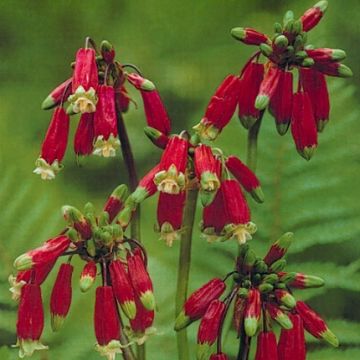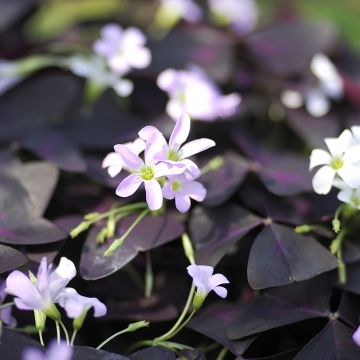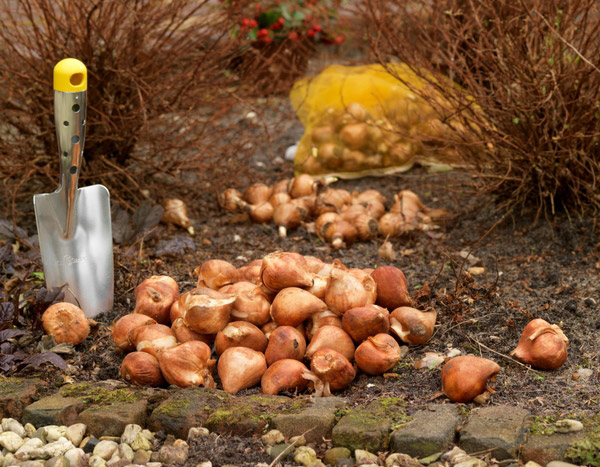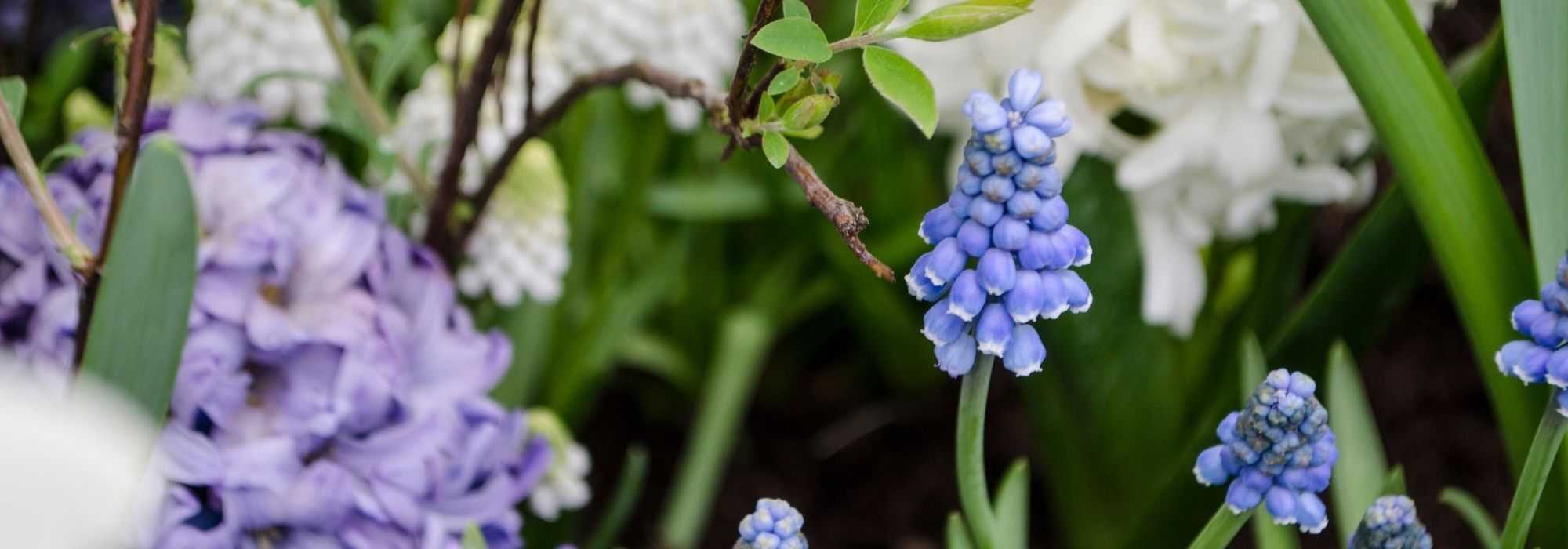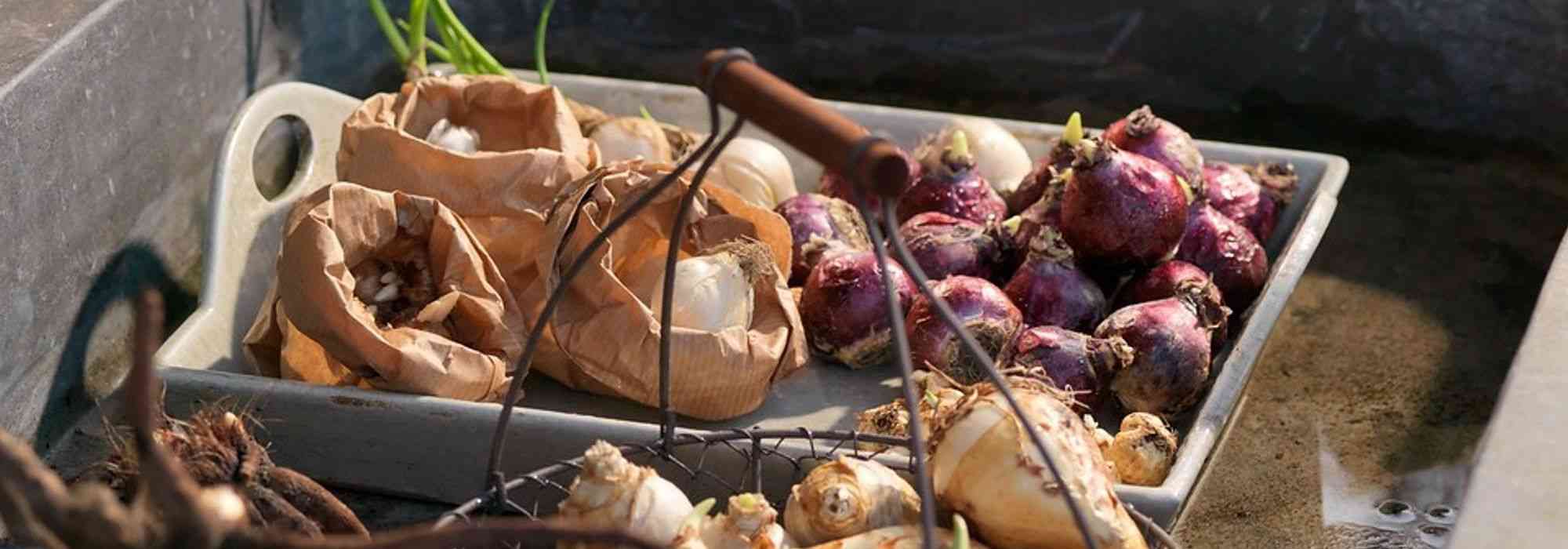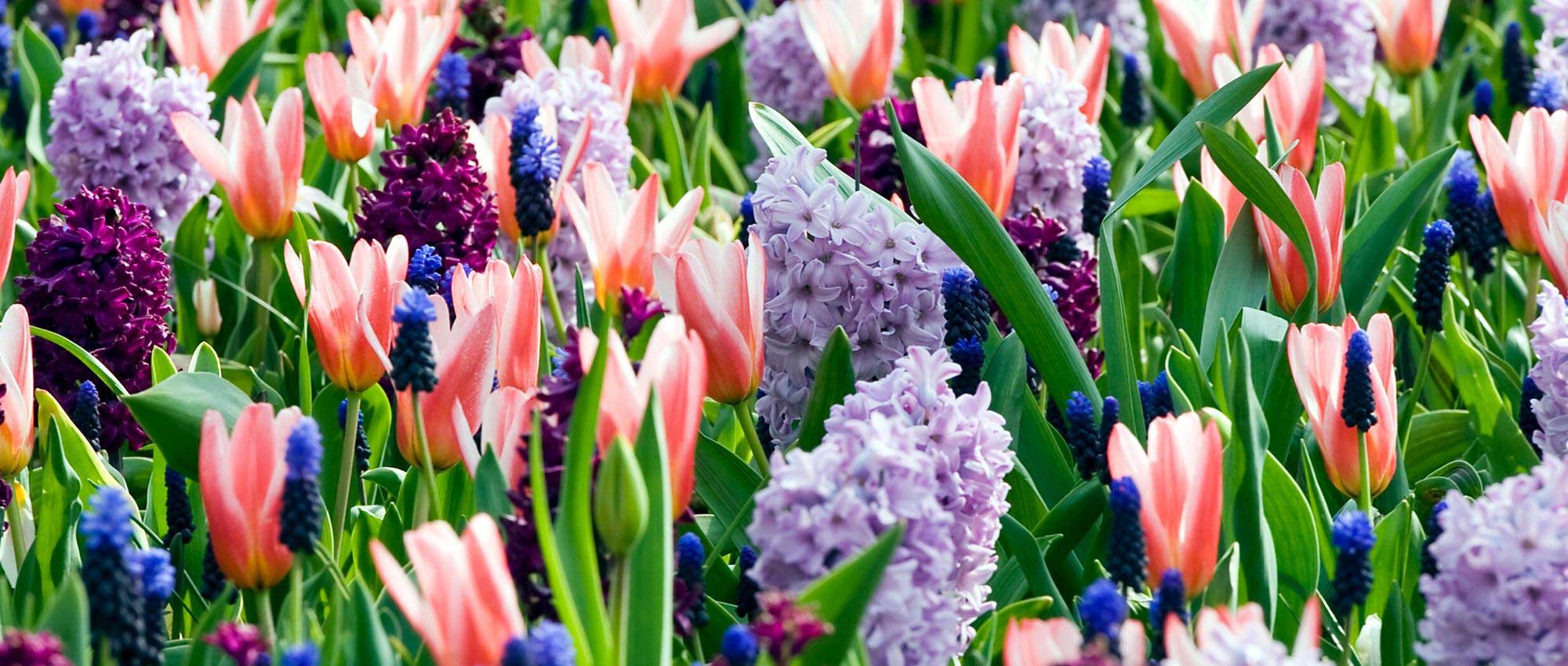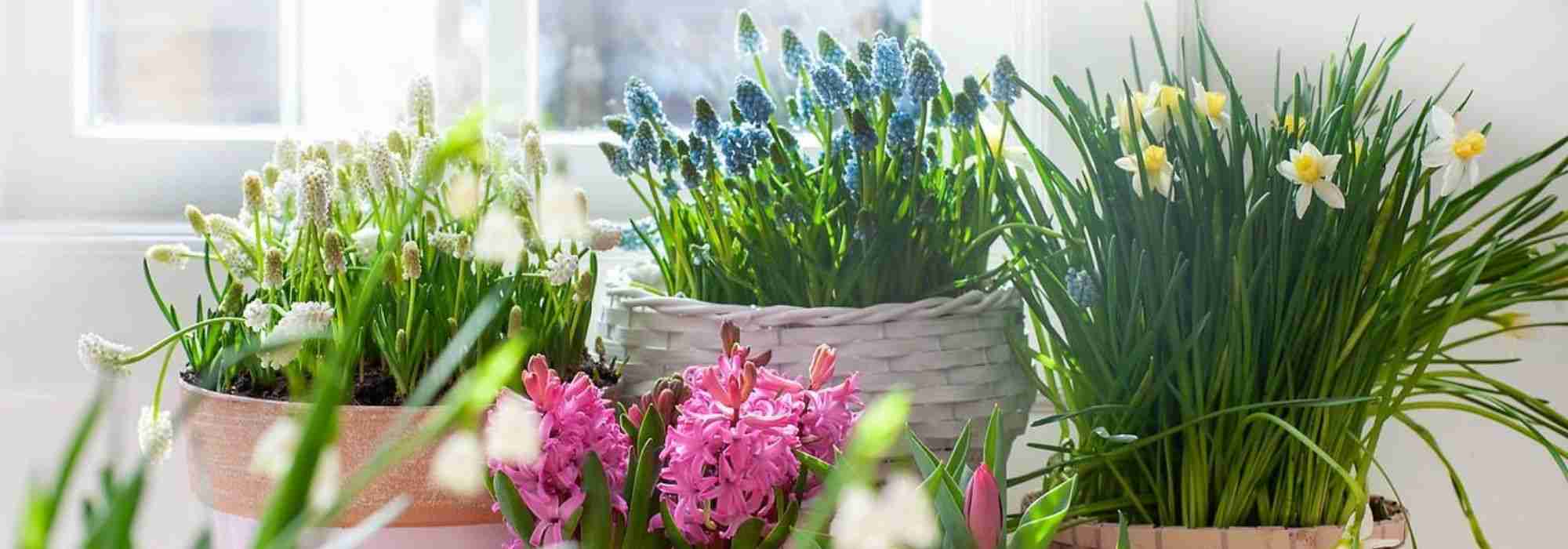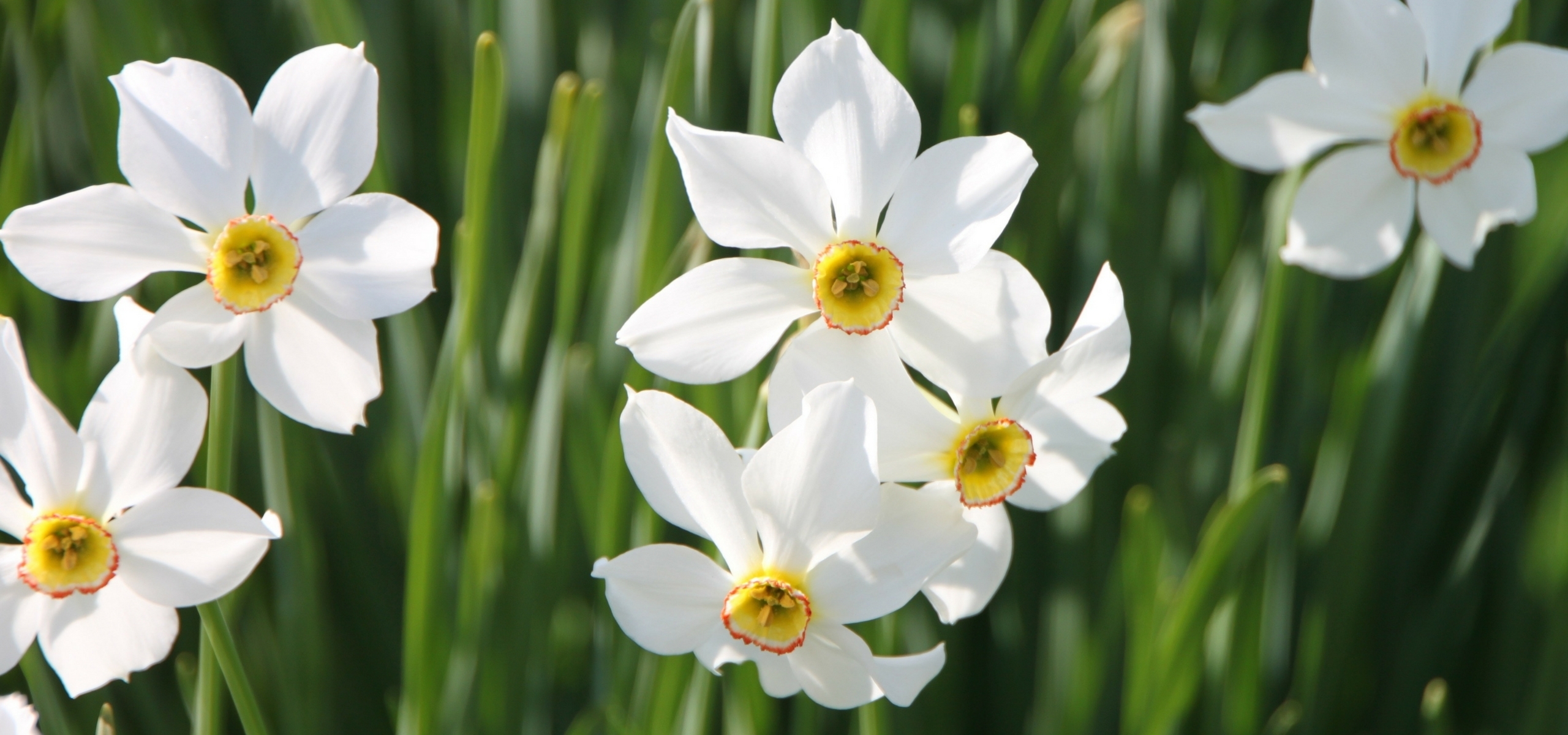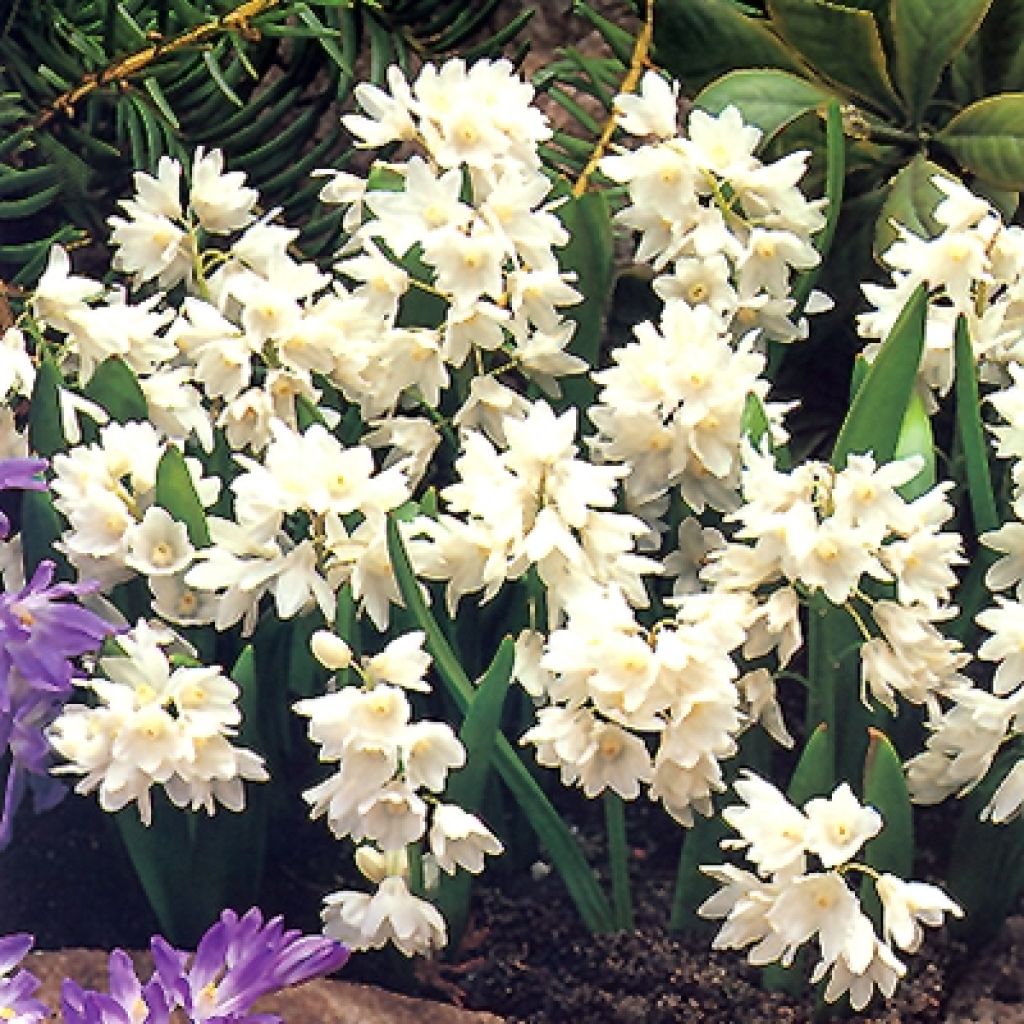

Puschkinia du Liban - Puschkinia scilloides Libanotica Alba
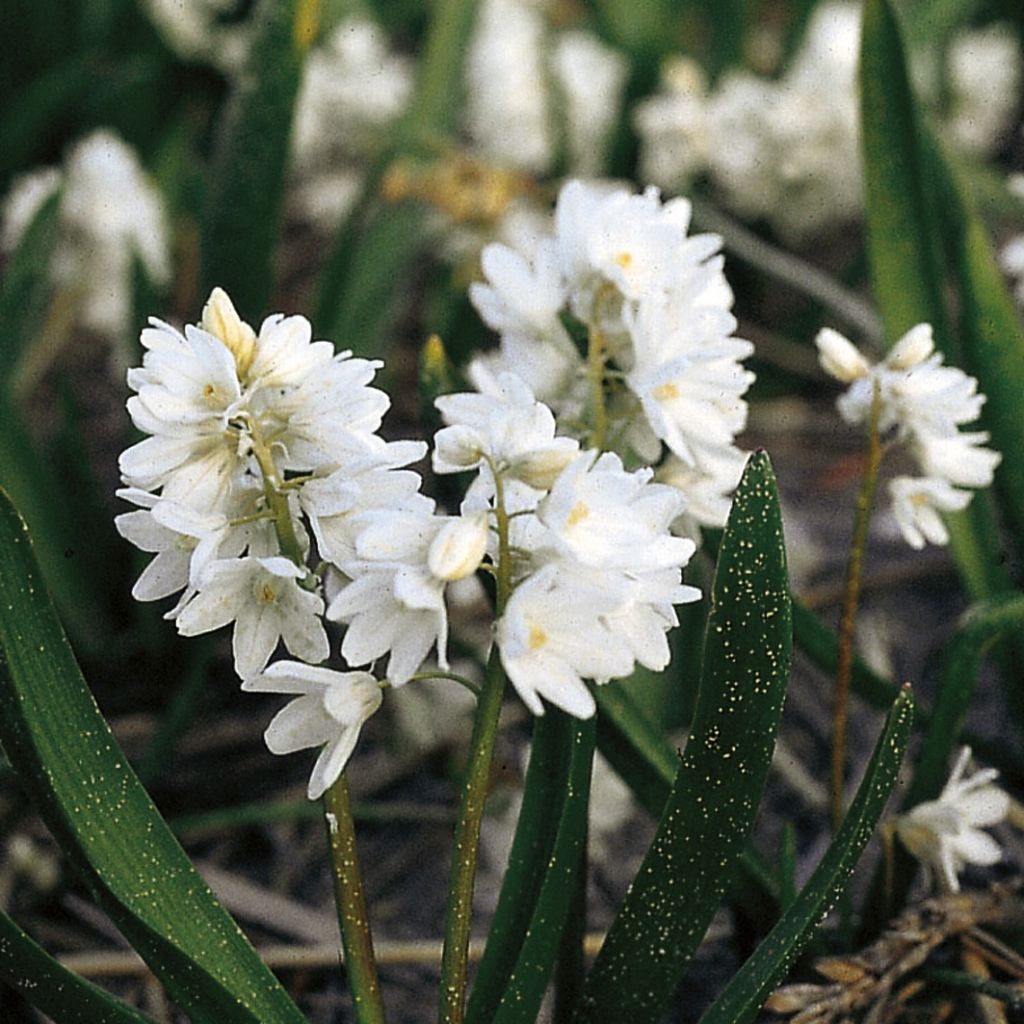

Puschkinia du Liban - Puschkinia scilloides Libanotica Alba
Puschkinia scilloides var. libanotica 'Alba'
Puschkinia scilloides var libanotica Alba
Lebanese squill
They didn't flower? I'm looking forward to next year with anticipation.
Annie , 21/05/2024
Special offer!
Receive a €20 voucher for any order over €90 (excluding delivery costs, credit notes, and plastic-free options)!
1- Add your favorite plants to your cart.
2- Once you have reached €90, confirm your order (you can even choose the delivery date!).
3- As soon as your order is shipped, you will receive an email containing your voucher code, valid for 3 months (90 days).
Your voucher is unique and can only be used once, for any order with a minimum value of €20, excluding delivery costs.
Can be combined with other current offers, non-divisible and non-refundable.
Why not try an alternative variety in stock?
View all →This plant carries a 6 months recovery warranty
More information
We guarantee the quality of our plants for a full growing cycle, and will replace at our expense any plant that fails to recover under normal climatic and planting conditions.
Does this plant fit my garden?
Set up your Plantfit profile →
Description
Puschkinia scilloides var. libanotica 'Alba' is a very pretty form with white flowers of the Lebanese Puschkinia, a bulbous plant that is still not widely spread despite its many qualities. Similar to the wood hyacinth, Puschkinia thrives in cool woodland areas, which it illuminates in early spring. It is a perfectly hardy and low-maintenance plant that naturalizes itself by producing bulblets, forming over time large carpets that beautify year after year.
Puschkinia scilloides var. libanotica is a perennial herbaceous plant with a bulb belonging to the Lily family. It is a species native to wet areas and alpine meadows in the Middle East and Near East. It prefers bright semi-shade and light woodland environments, and it prefers deep, humus-rich, sandy loam soils with a slight acidity. The 'Alba' cultivar only differs in the white colour of its flowers.
The vegetation emerges in spring, taking the form of a clump composed of 3 to 6 upright and then trailing basal leaves, narrow and linear, of a bright green colour. From the centre of the clump emerges from February to May (depending on the climate) a floral stem measuring 15 to 20cm (6 to 8in) in height. It bears at its tip a cluster of 5 to 10 small star-shaped bell flowers, white in colour, barely streaked with grey. The foliage dries up in June, while the fruit-bearing floral stem persists until August.
The Lebanese Puschkinia 'Alba' is best planted in mass in an herbaceous border, along a path or under lightly foliaged trees. This bulbous plant will be superb, in all its simplicity, associated with the wild daffodil (Narcissus pseudo-narcissus) which enjoys the same environments. Other pretty and unassuming plants such as wood anemone, winter Aconite, or wild garlic will accompany it in the morning sun or semi-shade, at the edge of a shrub border.
Report an error about the product description
Plant habit
Flowering
Foliage
Botanical data
Puschkinia
scilloides var libanotica
Alba
Liliaceae
Lebanese squill
Middle East
Planting and care
Plant the Puschkinia of Lebanon 'Alba' in clumps of 3 to 5, covered with 8cm (3in) of good soil along the edges of lawns, flower beds, at the base of trees, spaced 10cm (4in) apart. The bulbs multiply easily and quickly once the plants are established. Prepare the soil well by loosening and lightening it with a addition of sand and leaf compost if necessary. Highly chalky soils should be avoided, as well as very dry soils in summer.
Planting period
Intended location
Care
Planting & care advice
-
, onOrder confirmed
Reply from on Promesse de fleurs
Haven't found what you were looking for?
Hardiness is the lowest winter temperature a plant can endure without suffering serious damage or even dying. However, hardiness is affected by location (a sheltered area, such as a patio), protection (winter cover) and soil type (hardiness is improved by well-drained soil).

Photo Sharing Terms & Conditions
In order to encourage gardeners to interact and share their experiences, Promesse de fleurs offers various media enabling content to be uploaded onto its Site - in particular via the ‘Photo sharing’ module.
The User agrees to refrain from:
- Posting any content that is illegal, prejudicial, insulting, racist, inciteful to hatred, revisionist, contrary to public decency, that infringes on privacy or on the privacy rights of third parties, in particular the publicity rights of persons and goods, intellectual property rights, or the right to privacy.
- Submitting content on behalf of a third party;
- Impersonate the identity of a third party and/or publish any personal information about a third party;
In general, the User undertakes to refrain from any unethical behaviour.
All Content (in particular text, comments, files, images, photos, videos, creative works, etc.), which may be subject to property or intellectual property rights, image or other private rights, shall remain the property of the User, subject to the limited rights granted by the terms of the licence granted by Promesse de fleurs as stated below. Users are at liberty to publish or not to publish such Content on the Site, notably via the ‘Photo Sharing’ facility, and accept that this Content shall be made public and freely accessible, notably on the Internet.
Users further acknowledge, undertake to have ,and guarantee that they hold all necessary rights and permissions to publish such material on the Site, in particular with regard to the legislation in force pertaining to any privacy, property, intellectual property, image, or contractual rights, or rights of any other nature. By publishing such Content on the Site, Users acknowledge accepting full liability as publishers of the Content within the meaning of the law, and grant Promesse de fleurs, free of charge, an inclusive, worldwide licence for the said Content for the entire duration of its publication, including all reproduction, representation, up/downloading, displaying, performing, transmission, and storage rights.
Users also grant permission for their name to be linked to the Content and accept that this link may not always be made available.
By engaging in posting material, Users consent to their Content becoming automatically accessible on the Internet, in particular on other sites and/or blogs and/or web pages of the Promesse de fleurs site, including in particular social pages and the Promesse de fleurs catalogue.
Users may secure the removal of entrusted content free of charge by issuing a simple request via our contact form.
The flowering period indicated on our website applies to countries and regions located in USDA zone 8 (France, the United Kingdom, Ireland, the Netherlands, etc.)
It will vary according to where you live:
- In zones 9 to 10 (Italy, Spain, Greece, etc.), flowering will occur about 2 to 4 weeks earlier.
- In zones 6 to 7 (Germany, Poland, Slovenia, and lower mountainous regions), flowering will be delayed by 2 to 3 weeks.
- In zone 5 (Central Europe, Scandinavia), blooming will be delayed by 3 to 5 weeks.
In temperate climates, pruning of spring-flowering shrubs (forsythia, spireas, etc.) should be done just after flowering.
Pruning of summer-flowering shrubs (Indian Lilac, Perovskia, etc.) can be done in winter or spring.
In cold regions as well as with frost-sensitive plants, avoid pruning too early when severe frosts may still occur.
The planting period indicated on our website applies to countries and regions located in USDA zone 8 (France, United Kingdom, Ireland, Netherlands).
It will vary according to where you live:
- In Mediterranean zones (Marseille, Madrid, Milan, etc.), autumn and winter are the best planting periods.
- In continental zones (Strasbourg, Munich, Vienna, etc.), delay planting by 2 to 3 weeks in spring and bring it forward by 2 to 4 weeks in autumn.
- In mountainous regions (the Alps, Pyrenees, Carpathians, etc.), it is best to plant in late spring (May-June) or late summer (August-September).
The harvesting period indicated on our website applies to countries and regions in USDA zone 8 (France, England, Ireland, the Netherlands).
In colder areas (Scandinavia, Poland, Austria...) fruit and vegetable harvests are likely to be delayed by 3-4 weeks.
In warmer areas (Italy, Spain, Greece, etc.), harvesting will probably take place earlier, depending on weather conditions.
The sowing periods indicated on our website apply to countries and regions within USDA Zone 8 (France, UK, Ireland, Netherlands).
In colder areas (Scandinavia, Poland, Austria...), delay any outdoor sowing by 3-4 weeks, or sow under glass.
In warmer climes (Italy, Spain, Greece, etc.), bring outdoor sowing forward by a few weeks.






























